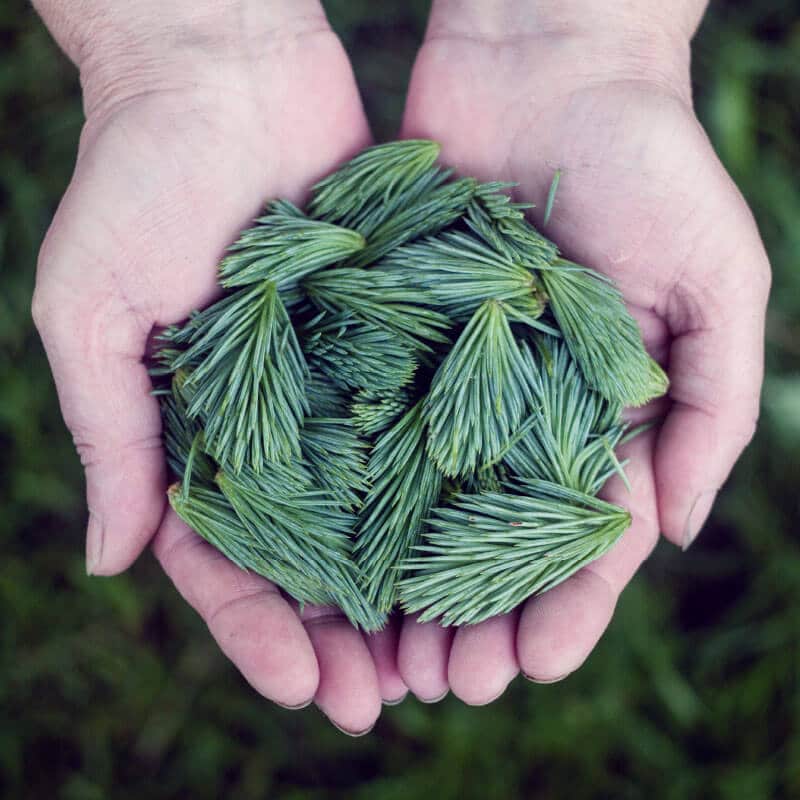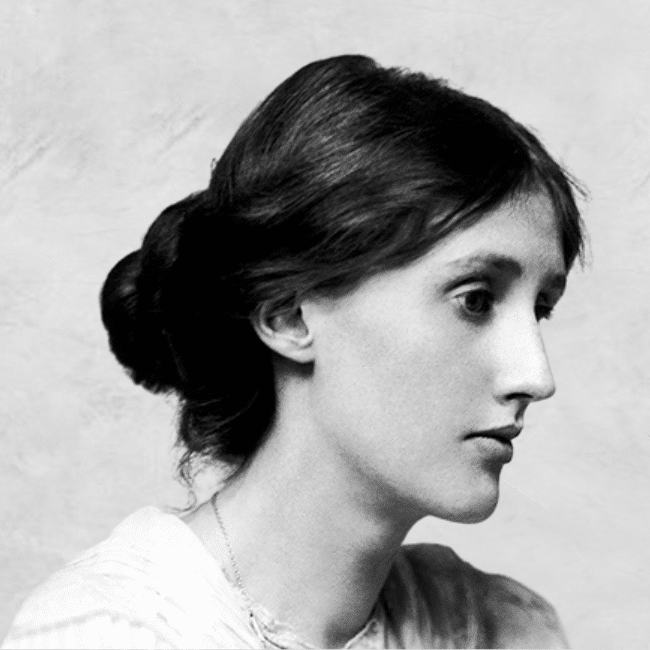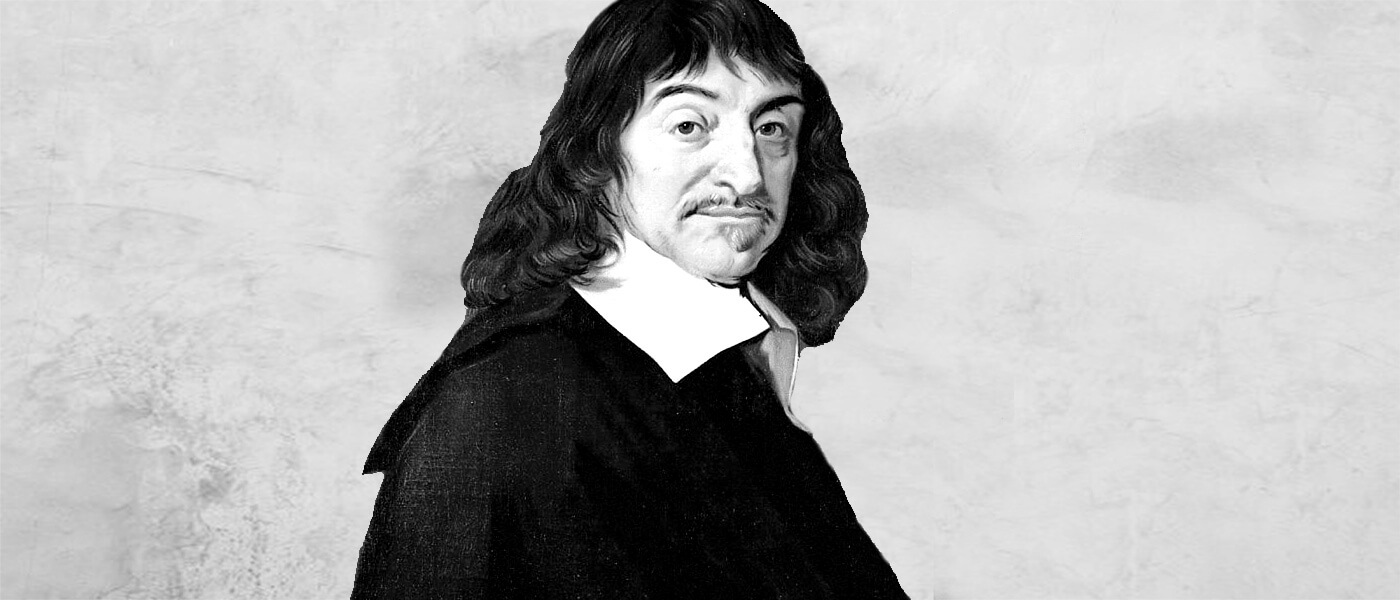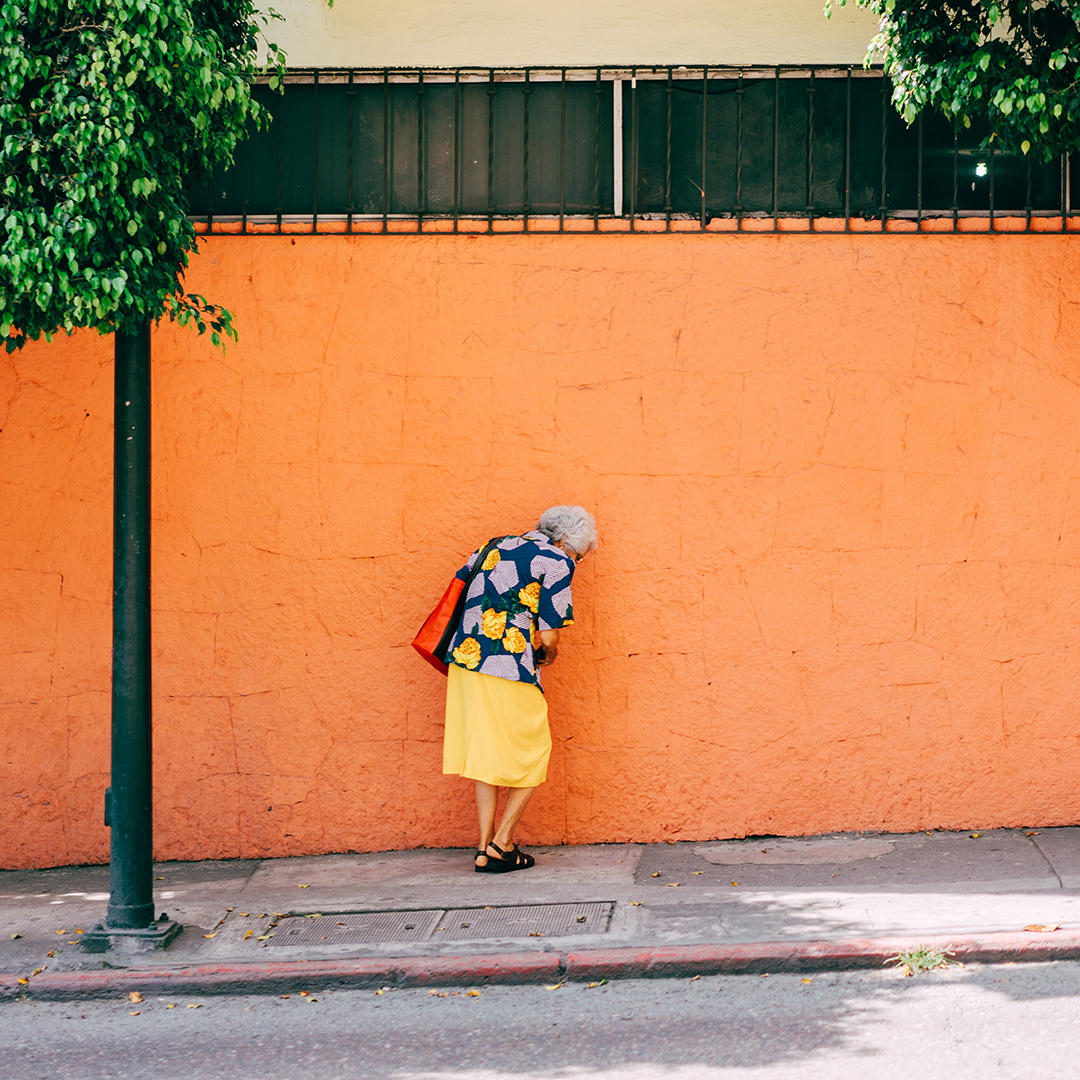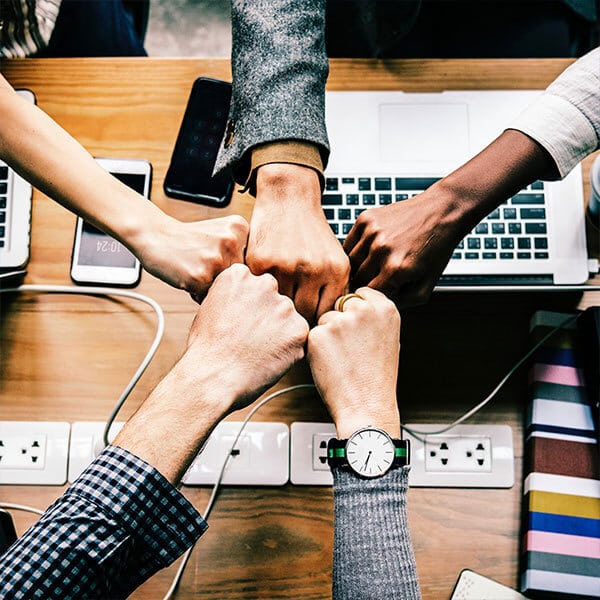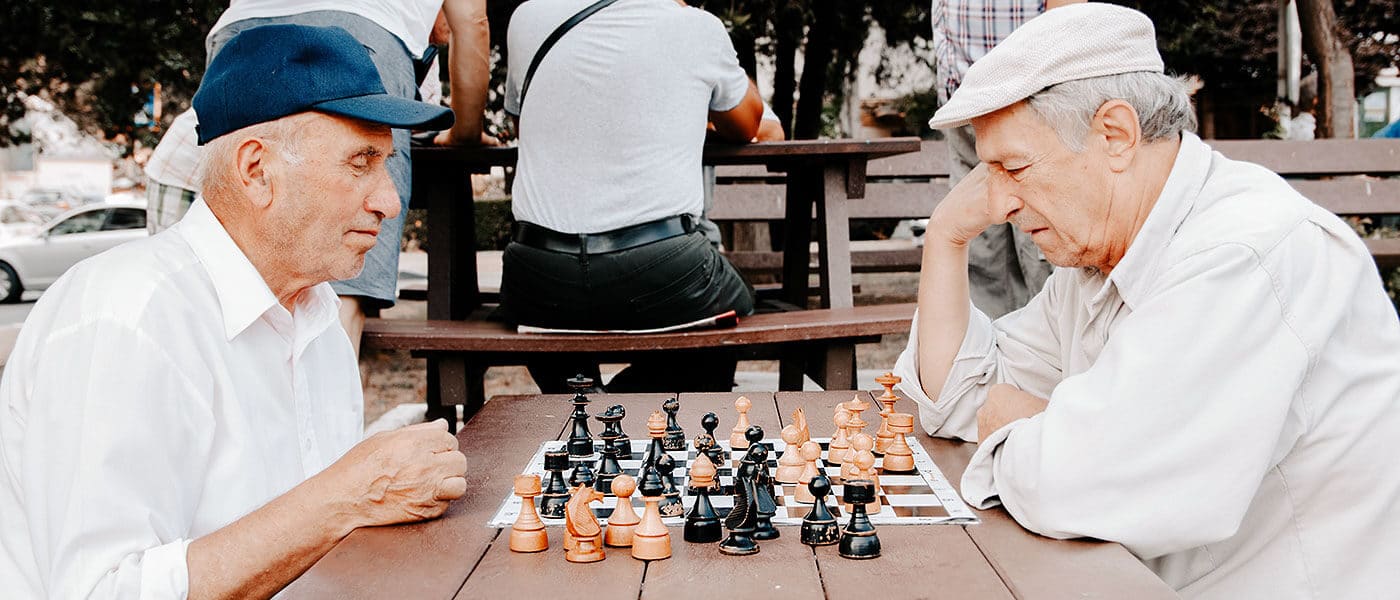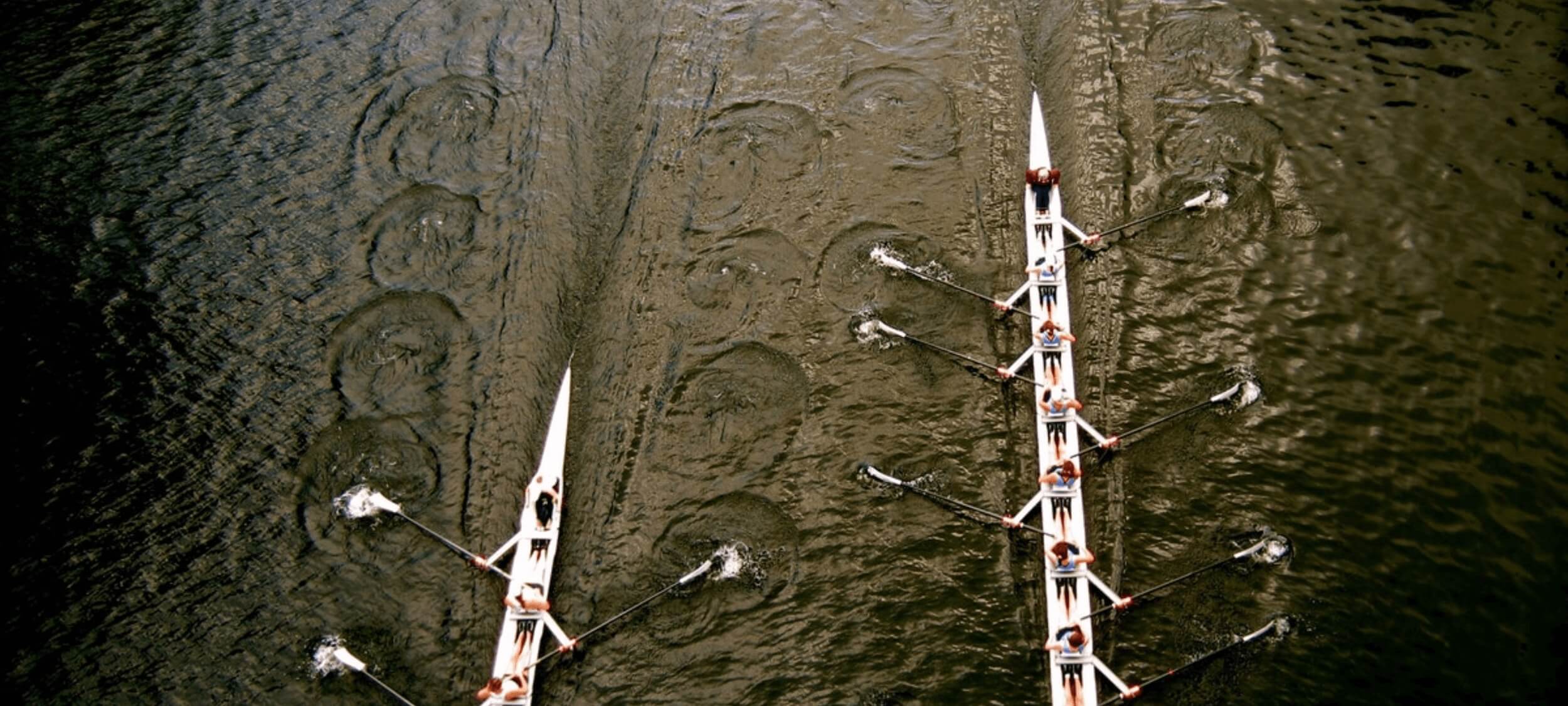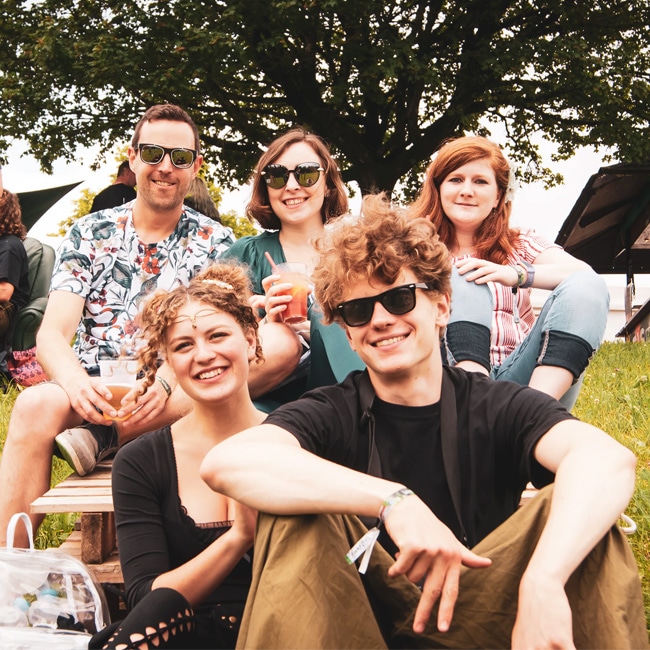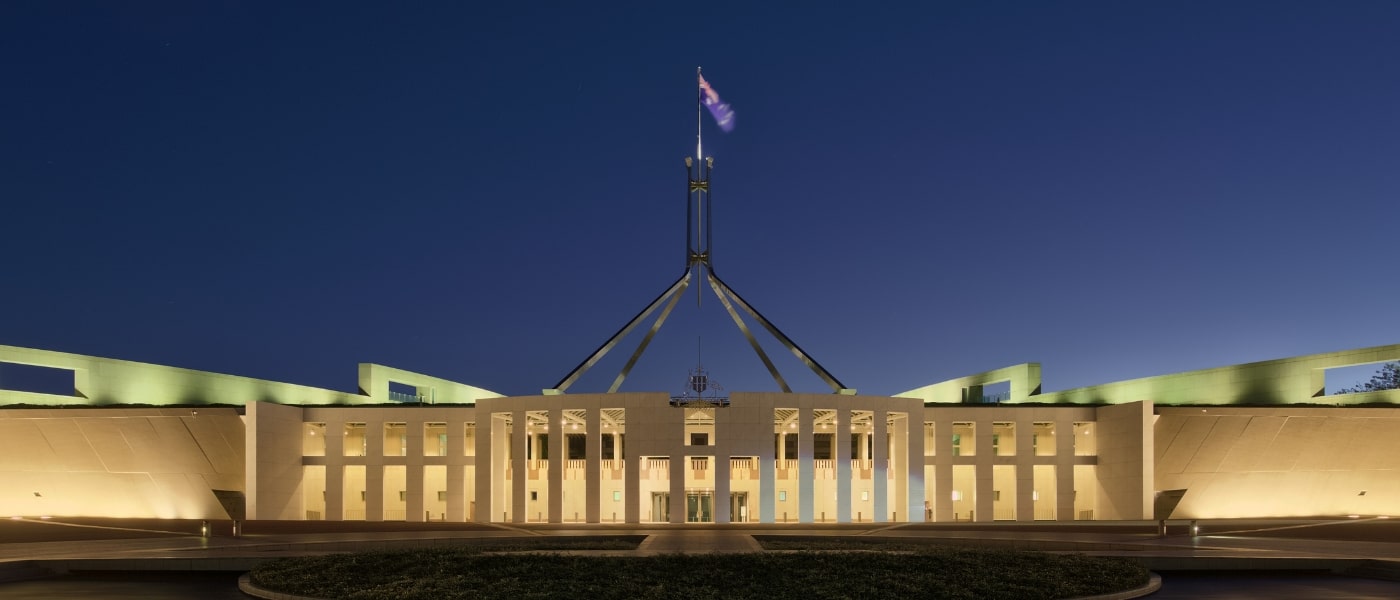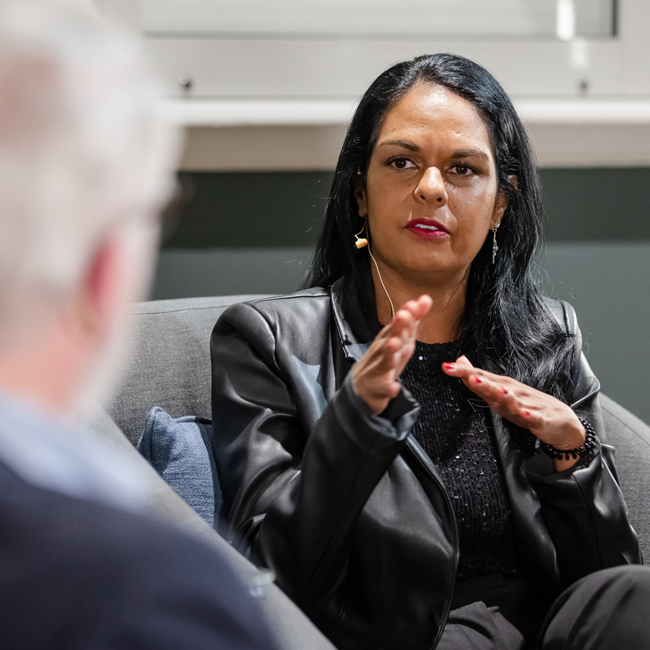The Ethics Centre: A look back on the highlights of 2018

The Ethics Centre: A look back on the highlights of 2018
Opinion + AnalysisBusiness + LeadershipSociety + Culture
BY The Ethics Centre 18 DEC 2018
Sometimes, good people do bad things. The last year confirmed this. Banks, schools, universities, the military, religious institutions – it seems 2018 left no sector unshaken.
These are the sorts of issues we confront every day at The Ethics Centre. In our reviews and confidential advice we have seen similar patterns repeat over and over again.
Yes, bad apples may exist, but we find ethical issues arise from bad cultures. And even our most trusted institutions, perhaps unwittingly, foster bad behaviour.
That’s why we have an important job. With your support we help society understand why ethical failures happen and provide safeguards lest they repeat.
As The Ethics Centre approaches its 30th birthday, we’d love to say we’re no longer needed. We hoped to bring ethics to the centre of everyday life and think we’ve made a small dent into that task. But there’s no point pretending there’s not a long way to go.
We thank you for supporting us and believing in us and are proud to share the highlights of another busy year with you.
If you’re short on time to read the full report now (and we’d really love you to take a look some time at what a small organisation like ours can achieve), here are seven highlights we’re particularly proud of:
• We launched The Ethics Alliance. A community of organisations unified by the desire to lead, inspire and shape the future of how we do business. In one year, 37 companies have benefited from the innovative tools that help staff at all levels make better decisions.
• We published a paper on public trust and the legitimacy of our institutions. Our conversations with regulators, investors, business leaders and community groups, revealed a sharp decline in the trust of our major institutions. We identify the agenda they need to in order to maintain public trust and contribute meaningfully to the common good.
• We ramped up Ethi-call. Calls to our free, independent, national helpline increased by 74 per cent this year. That’s even more people to benefit from impartial, private guidance from our highly trained ethical counsellors.
• We reviewed the culture of Australian cricket. When the ball-tampering scandal hit the world stage, Cricket Australia asked us to investigate. We uncovered a culture of ambition, arrogance, and control, where “winning at all costs” indicted administrators and players alike.
•We released a guide to designing ethical tech. Technology is transforming the way we experience reality. The need to make sure we don’t sacrifice ethics for growth is more pressing than ever. We propose eight principles to guide the development of all new technologies before they hit the market. You can download it here.
•We redesigned the Festival of Dangerous Ideas. FODI was created to facilitate courageous public conversation. The Ethics Centre and UNSW’s Centre for Ideas collaborated to untether the festival and produce a bold and necessary world-class cultural event. Every session sold out.
• We grew our tenth year of IQ2. We doubled the number of live attendees and tripled the student base showing audiences are more intelligent and hungry for diverse ideas than they are often given credit for. We welcomed a new sponsor Australian Ethical whose values align with our own. There’s never been a better time to support smart, civic, public debate.
Ethics in your inbox.
Get the latest inspiration, intelligence, events & more.
By signing up you agree to our privacy policy
You might be interested in…
Opinion + Analysis
Business + Leadership
How cost cutting can come back to bite you
Opinion + Analysis
Business + Leadership
How avoiding shadow values can help change your organisational culture
Opinion + Analysis
Business + Leadership, Relationships, Society + Culture
Extending the education pathway
Explainer
Business + Leadership, Politics + Human Rights
Ethics Explainer: Liberalism
BY The Ethics Centre
The Ethics Centre is a not-for-profit organisation developing innovative programs, services and experiences, designed to bring ethics to the centre of professional and personal life.
Ethics Explainer: Existentialism

If you’ve ever pondered the meaning of existence or questioned your purpose in life, you’ve partaken in existentialist philosophy.
It would be hard to find someone who hasn’t asked themselves the big questions. What is the meaning of life? What is my purpose? Why do I exist? For thousands of years, these questions were happily answered by the belief your purpose in life was assigned prior to your creation. The existentialists, however, disagreed.
Existentialism is the philosophical belief we are each responsible for creating purpose or meaning in our own lives. Our individual purpose and meaning is not given to us by Gods, governments, teachers or other authorities.
In order to fully understand the thinking that underpins existentialism, we must first explore the idea it contradicts – essentialism.
Essentialism
Essentialism was founded by the Greek philosopher Aristotle who posited everything had an essence, including us. An essence is “a certain set of core properties that are necessary, or essential for a thing to be what it is”. A book’s essence, for example, is its pages. It could have pictures or words or be blank, be paperback or hardcover, tell a fictional story or provide factual information. Without pages though, it would cease to be a book. Aristotle claimed essence was created prior to existence. For people, this means we’re born with a predetermined purpose.
This idea seems to imply, whether you’re aware of it or not, that your purpose in life has been determined prior to your birth. And as you live your life, the decisions you make on a daily basis are contributing to your ultimate purpose, whatever that happens to be.
This was an immensely popular belief for thousands of years and gave considerable weight to religious thought that placed emphasis on an omnipotent God who created each being with a predetermined plan in mind.
If you agreed with this thinking, then you really didn’t have to challenge the meaning of life or search for your purpose. Your God already provided it for you.
Existence precedes essence
While philosophers including Søren Kierkegaard, Fyodor Dostoyevsky and Friedrich Nietzsche questioned essentialism in the 19th century, existentialism was popularised by Jean-Paul Sartre in the mid-20th century following the horrific events of World War II.
As people questioned how something as catastrophically terrible as the Holocaust could have a predetermined purpose, existentialism provided a possible answer that perhaps it is the individual who determines their essence, not an omnipotent being.
The existentialist movement asked, “What if we exist first?”
At the time it was a revolutionary thought. You were created as a blank slate, tabula rasa, and it is up to you to discover your life’s purpose or meaning.
While not necessarily atheist, existentialists believe there is no divine intervention, fate or outside forces actively pushing you in particular directions. Every decision you make is yours. You create your own purpose through your actions.
The burden of too much freedom
This personal responsibility to shape your own life’s meaning carries significant anxiety-inducing weight. Many of us experience the so-called existential crisis where we find ourselves questioning our choices, career, relationships and the point of it all. We have so many options. How do we pick the right ones to create a meaningful and fulfilling life?
“Man is condemned to be free; because once thrown into the world, he is responsible for everything he does” – John-Paul Sartre
Freedom is usually presented positively but Sartre posed that your level of freedom is so great it’s “painful”. To fully comprehend your freedom, you have to accept that only you are responsible for creating or failing to create your personal purpose. Without rules or order to guide you, you have so much choice that freedom is overwhelming.
The absurd
Life can be silly. But this isn’t quite what existentialists mean when they talk about the absurd. They define absurdity as the search for answers in an answerless world. It’s the idea of being born into a meaningless place that then requires you to make meaning.
The absurd posits there is no one truth, no inherent rules or guidelines. This means you have to develop your own moral code to live by. Sartre cautioned looking to authority for guidance and answers because no one has them and there is no one truth.
Living authentically and bad faith
Coined by Sartre, the phrase “living authentically” means to live with the understanding of your responsibility to control your freedom despite the absurd. Any purpose or meaning in your life is created by you.
If you choose to live by someone else’s rules, be that anywhere between religion and the wishes of your parents, then you are refusing to accept the absurd. Sartre named this refusal “bad faith”, as you are choosing to live by someone else’s definition of meaning and purpose – not your own.
So, what’s the meaning of life?
If you’re now thinking like an existentialist, then the answer to this question is both elementary and infinitely complex. You have the answer, you just have to own it.
Ethics in your inbox.
Get the latest inspiration, intelligence, events & more.
By signing up you agree to our privacy policy
You might be interested in…
Explainer
Relationships
Ethics Explainer: Teleology
Opinion + Analysis
Relationships
A guide to ethical gift giving (without giving to charity)
Opinion + Analysis
Relationships
The tyranny of righteous indignation
Opinion + Analysis
Relationships
The philosophy of Virginia Woolf
BY The Ethics Centre
The Ethics Centre is a not-for-profit organisation developing innovative programs, services and experiences, designed to bring ethics to the centre of professional and personal life.
Ethics Explainer: Hope

We hope for fine weather on weekends and the best for our buddies – an obvious statement that hardly screams ethics.
But within our everyday desires for good things, lies a duty to each other and ourselves to only act on reasonably held hopes.
The ethics of hope
One of Immanuel Kant’s simple but resonant maxims is ‘ought implies can’. In other words, if you believe someone has an ethical responsibility to do something, it must be possible. No person is under any obligation to do what is impossible. You might call me a bad person for failing to fly through the sky and save someone falling from a great height. But your condemnation will be rejected as ill-founded for the simple reason only fictional characters can perform that feat.
Many other things – including extremely difficult things – are reasonably expected of others. A person might promise to climb Mount Everest (or at least make a serious attempt) prior to their 50thbirthday. This might present the greatest challenge imaginable. Yet we know scaling the heights of Everest is possible. As such, the person who made this promise is bound to honour their commitment.
Of course, at the time of making such a promise, no person can know with absolute certainty they will be able to meet the obligation they have taken on. There are just too many variables outside of their control that can frustrate their best laid plans. Weather conditions might lead to the closure of the mountain. The need to provide personal care to a loved one could extend well beyond any anticipated period. Given this, our ethical commitments are almost always tinged with a measure of hope.
What is hope?
Hope is an expectation that some desirable circumstance will arise. Hope sometimes blends into something closer to ‘faith’ – where belief about a state of affairs cannot be proven. However, for most people, most of the time, ‘hope’ is a reasonable expectation.
For example, if a person makes commitments that critically depend on other people keeping their promises, that person cannot know for certain they can honour their word. Yet, if these people are known and trusted, perhaps based on past experience, then a hopeful dependence on their performance would be reasonable.
The same can be said of other commitments, such as promising to meet for a picnic on a particular day. You might make the plan in the hopeful expectation of fine weather and do so with good grounds based on a checked forecast predicting clear skies.
There are two things to be noted here. First, some aspects of hope depend (for their reasonableness) on the ethical commitments of other people (for example, to keep promises). It follows there will often be a reciprocal ethical aspect to the practice of ‘reasonable’ hoping.
Second, it’s not enough to be naively hopeful. Instead, one needs to take reasonable efforts to ensure there is some basis for relying on a hoped-for circumstance. This is especially so if the hoped-for circumstance is of critical importance to matters of grave ethical significance – such as making a promise to someone.
Given this, there may be good grounds to calibrate commitments in line with the degree to which you might reasonably hope for a particular circumstance to prevail. For example, rather than making an open commitment to meet for a particular picnic on a particular day it might be better to qualify the point by saying, “I promise to meet you if the weather is fine”.
‘It’s not enough to be naively hopeful.’
We often see the absence of this kind of forethought when it comes to the promises made by politicians during elections. They will make promises – probably based on hopeful projections about the future – only to find themselves accused of lying or having acted in bad faith when the promise is not honoured.
It’s insufficient for the politician to say they merely ‘hoped’ to be able to keep their word and that they now find their situation to be unexpectedly different. It would have been far better and far more responsible to qualify the promise in line with what might explicitly and reasonably be hoped for.
Two final comments. First, it should be understood a person often has some control over whether or not their hopes can be realised. As such, each person is responsible for those of their actions that impinge on the way they meet their obligations – we are not simply ‘bystanders’ who can idly hope for certain outcomes without lifting a finger to make them manifest.
Second, given our inability to know what the future holds, hope always plays a role in the process of making ethical commitments. The key thing is to be reasonable in what we hope for and to calibrate our commitments accordingly.
Ethics in your inbox.
Get the latest inspiration, intelligence, events & more.
By signing up you agree to our privacy policy
You might be interested in…
Explainer
Relationships
Ethics Explainer: The Other
Opinion + Analysis
Politics + Human Rights, Relationships
Is it wrong to care about Ukraine more than other wars?
Big thinker
Relationships
Big Thinker: René Descartes
Opinion + Analysis
Relationships, Society + Culture
Five dangerous ideas to ponder over the break
BY The Ethics Centre
The Ethics Centre is a not-for-profit organisation developing innovative programs, services and experiences, designed to bring ethics to the centre of professional and personal life.
Big Thinker: Temple Grandin
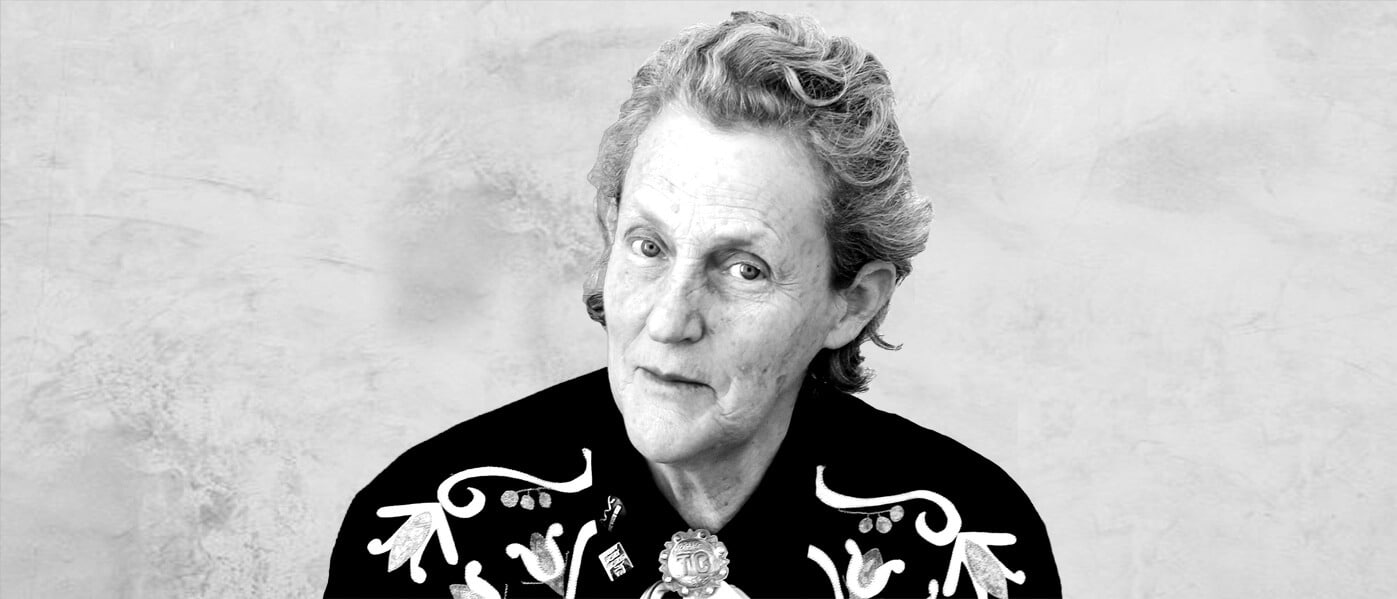
Big Thinker: Temple Grandin
Big thinkerHealth + WellbeingRelationships
BY The Ethics Centre 4 DEC 2018
Turning a perceived disability into a new way of solving problems, Temple Grandin (1947—present) has revolutionised the meat-processing industry and changed the way the world views autism.
Temple Grandin is an autism advocate and animal scientist who works to improve animal treatment in the livestock industry. Grandin has also changed public perceptions of autism, helping educators to maximise the strengths of those with autism, rather than focusing only on deficiencies.
An animal lover and meat eater, Grandin has used her autistic trait of “thinking in pictures” to design livestock facilities and educate meat produces on how to minimise animal suffering. As a result, she says there’s been ‘light years of improvement’ in an industry where half of all cattle in the United States are handled in facilities she designed.
This isn’t enough for some animal rights activists though, who accuse her of trying to soften the image of a ‘violent’ sector.
Thinking like a cow
Temple Grandin did not talk until she was three and a half years old. She struggled to communicate throughout her childhood, and other students bullied her at school.But there was one high school teacher, Mr Carlock, who saw something special in her. He mentored the troubled girl and encouraged her to study science.
Shocked by the cruelty she saw in abattoirs, Grandin combined her love for science and animals by fixating on designs to improve animal welfare in these facilities. Grandin knew she learned better by visualising, rather than reading and hearing long strings of words. In this respect, her thinking pattern was similar to animals, who don’t ‘speak’ a language.
She observed cattle in slaughterhouses, seeing how they responded to fear, senses, smells and visual memories. When cows can see they’re about to be killed, they panic, fall and injure themselves. To combat this, Grandin invented the curved loading chutes, which block their vision of what’s ahead, keeping them calm.
This not only improves animal welfare, it saves producers the cost of cattle death, injury and bruising – which also reduces the quality of meat. Grandin has spent her career designing livestock facilities to improve the way animals are treated.
In 1997, she worked with McDonalds after activists exposed animal torture on their production plants. She helped the fast food chain clean up cruel practices and restore its public image.
In 2010, Time Magazine named her one of the 100 most influential people in the world for her work in animal welfare.
We need autistic minds
Grandin has also changed public perceptions of autism, a condition relatively unknown when she grew up. She argues people on the autism spectrum – who tend to struggle with verbal communication but think in pictures – can provide more insight in certain fields than those who think in a more conventional mathematical way.
“Visual thinking is an asset for an equipment designer. I am able to ‘see’ how all parts of a project will fit together and see potential problems.”
Grandin encourages teachers to develop the strengths of autistic children, and has devised clever ways to combat perceived flaws.Like many on the spectrum, she is oversensitive to touch. “I always hated to be hugged”, she says.
So at age 18, she built a ‘squeeze machine’ – two hinged wooden boards lined with foam rubber, which allows users to control the amount and duration of pressure applied. Therapy programs across the United States continue to utilise squeeze machines, with research showing they help relieve stress in users.
Hero or villain?
While considered a hero in the autism community, Grandin’s work divides animal welfare activists. People for the Ethical Treatment of Animals (PETA), the world’s largest animal rights group, appreciate and publish her work. Others, like biologist Marc Bekoff, hold that no animal in captivity can enjoy a pleasant life. Bekoff would rather see Grandin encourage people not to consume factory farmed animals; to him, “‘slightly better’ isn’t good enough”.
“No animal who winds up in the factory farm production line has a good or even moderately good life.” – Marc Bekoff
Grandin’s retort is that without meat eaters, farm animals would have no life at all. She argues if animals are going to die anyway, it’s important to minimise their suffering.
Does this apply to humans too?
The New York Times once asked her if she’d consider helping to make capital punishment more humane. Her response was blunt.
“I have read things about the malfunctions of the electric chair… I know how to fix it, but I will not use my knowledge to have any involvement in that. I will not cross the species barrier to help kill people. Period.”
Ethics in your inbox.
Get the latest inspiration, intelligence, events & more.
By signing up you agree to our privacy policy
You might be interested in…
Opinion + Analysis
Health + Wellbeing, Relationships
Eight questions to consider about schooling and COVID-19
Opinion + Analysis
Health + Wellbeing
The moral life is more than carrots and sticks
LISTEN
Health + Wellbeing, Business + Leadership, Society + Culture
Life and Shares
Opinion + Analysis
Relationships, Society + Culture
Meet Josh, our new Fellow asking the practical philosophical questions
BY The Ethics Centre
The Ethics Centre is a not-for-profit organisation developing innovative programs, services and experiences, designed to bring ethics to the centre of professional and personal life.
Perils of an unforgiving workplace
s

Perils of an unforgiving workplace
Opinion + AnalysisBusiness + Leadership
BY The Ethics Centre ethics 30 NOV 2018
Public relations executive, Justine Sacco, thought she might get a few laughs when she tweeted what she thought was a poor-taste joke to her 170 followers. Instead, she was sacked from her job and found herself in the centre of a social media shaming frenzy.
Sent as she embarked on a flight, the tweet posted by Sacco in 2014 read: “Going to Africa. Hope I don’t get AIDS. Just kidding. I’m white!”.
This is the nature of the internet, where a crass and thoughtless “joke” is likely to taint Sacco’s whenever anyone types it into a search engine.
But while the internet may not forget, her employer has already forgiven her. US-based internet and media company IAC, rehired her after she spent a few years working elsewhere.
IAC CEO, Joey Levin, welcomed her back. “With one notable exception, Justine’s track record speaks for itself,” he wrote in a statement.
Business leaders are often encouraged to be tolerant of human frailties. Influential Harvard Business School professor, Rosabeth Moss Kanter, has written:
“Leaders must be firm and foster accountability, but they also must know when to forgive past wrongs in the service of building a brighter future”.
What about hiring a former criminal?
Humans are fallible. We do dumb stuff, we can take leave of our senses in times of stress, we let our emotions get the better of us and we make bad choices.
However, while employers may be prepared to forgive thoughtless actions made with “a sudden rush of blood to the head”, a criminal’s past may be something altogether different.
A substantial segment of the population will have some sort of criminal record, ranging from minor traffic and drug offences to serious jail time. Statistics from the UK, Canada and the US indicate around 20 to 25 per cent of their male populations and up to six per cent of women have a criminal record. Australia is assumed to be similar.
If employers insist that all their employees must have a “clean slate”, a lot of people will be left on the employment scrap heap. This discrimination is illegal anyway, unless said conviction prevents them from performing the inherent requirements of the job.
One person working to get former offenders back into the workforce is Rabbi Dr Dovid Slavin, CEO of Our Big Kitchen – a Bondi-based charity that trains and employs prisoners and former offenders. Last year, they distributed more than 80,000 meals to disadvantaged people.
Rabbi Slavin says work release programs are only available to around 1.5 per cent of inmates, who are in the final year of their sentence.
Once they are looking for employment, former inmates will have a more successful relationship with an employer if they are open about their criminal past, he says.
“The most important thing that I found is where an inmate is able to freely talk about what he or she did and they’ve come to terms with it,” he says.
“If they feel hard done by the system, rightly or wrongly, it can be very difficult for them to integrate and move forward because they carrying baggage from the past.”
If they are coming in a work-release program, they must be willing to have their bags checked, for instance. “They can’t be overly-precious about how they are treated,” he says.
“We here [at Our Big Kitchen] always treated them like family, treated them with a great deal of respect and comfort and that made them want to be extremely co-operative and extremely forthcoming.”
Two reasons to offer a second chance
The CEO of employment assistance organisation Joblink Plus, Christine Shewry, says employers have two compelling reasons to give former prisoners a second chance.
Firstly, people with troublesome backgrounds can make outstanding employees if they get the right support and training, says Shewry, whose service helps people who face barriers in the employment market in regional NSW.
“Those people who have not had the best start in life, who have had a challenge, can become amazing employees because of the discretionary effort they will put in when you give them a go.”
As a second motivation, offering redemption can have transformative effects on society.
In Glasgow, once regarded as the “murder capital” of Europe, non-sexual crimes of violence have fallen by 44 per cent over ten years – a feat credited to a police-initiated program to get offenders off the streets and into training and work.
Scotland’s police force adopted a public health approach, co-operating with the education system and health service to tackle the root causes of crime.
According to researchers Eileen Baldry and Sophie Russell at UNSW, the majority of prisoners in Australia have severely disadvantaged backgrounds, with serious health, mental health and disability concerns.
They say 60 per cent of inmates are not functionally literate or numerate, 64 per cent have no stable family, and 60 per cent of males and 70 per cent of females have a history of illicit drug use.
Shewry points to the effectiveness of back-to-work programs in turning people’s lives around. She says Joblink Plus has run programs for ex-offenders where 70 per cent have never reoffended, while national recidivism rates are at 44.8 per cent (the percentage of prisoners released during 2014-15 who returned to prison within two years
Rabbi Slavin says out of more than 40 former inmates employed through his program, none have returned to jail.
“If we, as a society, continue to shun anybody who has a criminal past, then we are really sentencing ourselves to that person having to re-offend because of the way he or she will be able to support themselves emotionally and physically and financially, he says.
“When somebody comes out of out of incarceration, very often their families have abandoned them, very often they’ve abandoned themselves. They don’t believe in themselves anymore.”
They have to adjust to a world where a correctional officer no longer dictates their every move. It could take 20 minutes for them to choose between soft drink brands because they are unused to making decisions, he says.
Managing the risk
Former CEO of logistics group, Toll Holdings, Paul Little, has been a strong supporter of helping former inmates into work. Under his stewardship, Toll ran a program, Second Step, which has helped more than 500 people to move from drug addiction and jail into permanent employment.
Little told The Australian newspaper that he regretted being unable to convince other ASX 200 companies to introduce a similar scheme. (Neither Little of Toll Holdings would comment for this article).
“It is a massive disappointment. People aren’t willing in business life, in corporate life, even in government, to try to manage that risk. We saw an opportunity for people to become amazing employees, and invariably they did.”
Shewry says some people, who are assessed by the government as ready to work, will have to be closely supervised if their criminal history dictates that. Those jobs may be in manufacturing, labouring, food processing, or rural work.
Emily Roy, Joblink Plus’ executive manager for community partnerships says is not a simple matter to place former offenders in work. “One of the big supports that we can offer employers is to not pretend that everything is going to be fabulous all the time,” she says.
“There are a lot of practicalities when working with someone who, for example, has a history of child-related offences. But we do work with them and there are employers who are able to do that because there is work that needs to be done. So, you put things in place and there is no opportunity to engage with children at all.”
Roy points out that employer concerns about hiring former offenders are not always rational. “It is interesting that we get concerned about the people who are known to us as being offenders – so these are known entities that we can manage, that we can support and put things in place.
“What is our community response as a whole to people who aren’t known to be doing that?”
Employers, have you discriminated?
When assessing the application of a person with a criminal record, questions that an employer may need to address might include:
1. Has the applicant or employee been informed about the possible relevance of a criminal record to the position?
2. Does the organisation have clear procedures for making decisions about applicants with a criminal record? For example, who makes the decision and how is it made?
3. Does the applicant or employee’s specific criminal record mean that he or she cannot fulfil the inherent requirements of the particular job?
4. Has the applicant or employee been given an opportunity to explain the circumstances surrounding any criminal record?
5. Is there an avenue for the employee to appeal the decision?
Follow The Ethics Centre on Twitter, Facebook, Instagram and LinkedIn.

This article was originally written for The Ethics Alliance. Find out more about this corporate membership program. Already a member? Log in to the membership portal for more content and tools here.
Ethics in your inbox.
Get the latest inspiration, intelligence, events & more.
By signing up you agree to our privacy policy
You might be interested in…
Opinion + Analysis
Business + Leadership
Recovery should be about removing vulnerability, not improving GDP
WATCH
Business + Leadership, Climate + Environment, Science + Technology
How to build good technology
Opinion + Analysis
Business + Leadership
Survivor bias: Is hardship the only way to show dedication?
Opinion + Analysis
Business + Leadership, Relationships
Employee activism is forcing business to adapt quickly
BY The Ethics Centre
The Ethics Centre is a not-for-profit organisation developing innovative programs, services and experiences, designed to bring ethics to the centre of professional and personal life.
BY ethics
6 Things you might like to know about the rich

6 Things you might like to know about the rich
Opinion + AnalysisBusiness + Leadership
BY The Ethics Centre ethics 29 NOV 2018
In Australia, where we like to cut our tall poppies down, wealthy people come with an unenviable reputation.
Unless you happen to be reading the business pages, money and power will attract sneering. Otherwise, the lionising coverage of those with outrageous success seems ample reward for their riches.
A multitude of psychological studies conclude rich people are more unethical and selfish than those who are less fortunate. However, one question remains mostly unanswered; what came first; the bad character or the money?
Here, we take a quick look at what research tells us about the collision of money and ethics:
1. Fancy car, poor driving
People driving expensive cars are four times more likely to ignore right of way laws on the road than those who drive cheap cars.
Dacher Keltner, a psychologist at the University of California at Berkeley
and his then-graduate student, Paul Piff, tracked the model of every car that cut off others.
“It told us that there’s something about wealth and privilege that makes you feel like you’re above the law, which allows you to treat others like they don’t exist,” Keltner told the Washington Post.
In another experiment, half of the luxury car drivers ignored a pedestrian on a crossing – many even after making eye contact. However, all the cheapest cars stopped.
2. They cheat more on their taxes
Taxpayers whose true income was between $US500,000 and $1 million a year understated their adjusted gross incomes by 21 per cent in 2001, compared to an eight percent underreporting rate for those earning $50,000 to $100,000 and even lower rates for those earning less than that.
According to research, wealthier people were more likely to cheat because it was easier for them to hide sources of income from self-employment, rents, capital gains and partnerships.
3. Less empathetic
Observations that rich people tend to be less generous than the poor may be influenced by the amount of time we spend looking at each other.
By analysing what people look at as they walk down a street (wearing Google Glasses), psychologists at the University of California, Berkeley,
Pia Dietze and Eric Knowles, discovered that social class did not affect how many times people looked at another person – but it did determine how much time they spend looking.
Participants self-nominating as higher in social class spent less time looking at other people.
Dacher Keltner says people in lower socioeconomic classes tend to be more vigilant because they “live lives defined by threat”.
4. Less generous
Middle-class Americans give a far bigger share of their discretionary income to charities than the rich. If the rich live in wealthy neighbourhoods, they give an even smaller share of their income than wealthy people in economically-diverse neighbourhoods.
“Wealth seems to buffer people from attending to the needs of others,” Paul Piff told the New York Times.
5. Cashed-up and sad = bad
People most likely to approve of unethical behaviour are those with a low level of happiness, but a high level of income, according to a survey of 27,672 professionals.
Conversely, the most disapproving of unethical behaviour were those with high income and life satisfaction, according to professor of management and organisations at the Kellogg School, the late Keith Murnighan, and Long Wang of the City University of Hong Kong.
“People who are exuberant and upbeat about life, and happen to have high income, are likely to be more trustworthy,” Murnighan told his university’s Kellogg Insight publication.
“An unhappy rich person might feel bad because of their own unethical behaviour, but it might be that very behaviour that got them rich in the first place.
“Having a comfortable amount of money might allow enough psychological ‘room’ to ethically consider the needs and perspectives of other people, which may then lead to feelings of well-being.”
6. Stereotypes are self-fulfilling
Negative stereotypes of rich people are all-pervasive. According to Adam Waytz, an Associate Professor of Management and Organisations at Northwestern University’s Kellogg School of Management, studies show that the more profitable a company, the more people linked it to social harm.
“People come to confirm the behaviours that are expected of them (we live up to and down to others’ stereotypes of us), and if rich people and business folks are assumed to behave with the same scruples as Bernie Madoff, these views will likely elicit unethical behaviour from them,” warns Waytz in a blog in the Scientific American.

This article was originally written for The Ethics Alliance. Find out more about this corporate membership program. Already a member? Log in to the membership portal for more content and tools here.
Ethics in your inbox.
Get the latest inspiration, intelligence, events & more.
By signing up you agree to our privacy policy
You might be interested in…
Opinion + Analysis
Business + Leadership
Let’s cure the cause of society’s ills, and not just treat the symptoms
Opinion + Analysis
Business + Leadership
Leading ethically in a crisis
Opinion + Analysis
Business + Leadership
This tool will help you make good decisions
Opinion + Analysis
Business + Leadership, Health + Wellbeing, Science + Technology
Can robots solve our aged care crisis?
BY The Ethics Centre
The Ethics Centre is a not-for-profit organisation developing innovative programs, services and experiences, designed to bring ethics to the centre of professional and personal life.
BY ethics
Political aggression worsens during hung parliaments

Political aggression worsens during hung parliaments
Opinion + AnalysisBusiness + Leadership
BY The Ethics Centre ethics 27 NOV 2018
In the bear-pit of the House of Commons, the Government and Opposition benches are precisely placed two sword-lengths apart. If that doesn’t tell you about the standards of behaviour expected of our politicians, nothing will.
Former Foreign Minister and Deputy Prime Minister, Julie Bishop, says she has witnessed behaviour that would not be “tolerated in any other workplace across Australia”.
Observers from other nations have been sometimes lavish in their condemnation of the goings-on in the nation’s capital. Matthew Engel in The Financial Times judged Australia the worst of all the “crazy parliaments” he had observed in 2012.
“The only thing the MPs can do,” wrote Engel, “is overthrow their leaders, which they do with great zest, in the manner of Roman slaves celebrating Saturnalia.”
Such is the public distaste for the taunting and name-calling that parents often use Question Time conduct as an example to their children of what not to do at primary school.
Is bullying getting worse?
In recent months, the standards of behaviour became a topic for discussion once again when Liberal Party women spoke out against bullying and the lack of female representation among party MPs.
With a Party ideology that celebrates individualism, rather than collective action, photographs of Liberal women co-ordinating their wardrobes to wear “Handmaid’s Tale” red in question time in Question Time created a stir.
This uncharacteristic outspokenness about their own colleagues may have led to the impression that the traditionally-bad behaviour is getting worse. But is this really the case?
Dr Marija Taflaga is a researcher in the School of Politics & International Relations at the Australian National University and has been studying this very question.
Taflaga says, over the past 22 years, aggression levels have ebbed and flowed. Overall behaviour (while perhaps considered unacceptable elsewhere) is now less aggressive than during the minority Government of Labor’s Julia Gillard.
Incivility, measured as a “ferocity index”, rises significantly when there is more at stake, trying to pass significant legislation, or during “hung parliaments” – this does not auger well for the next six months until the next Federal election.
A change in tactics
Other factors encouraging poor behaviour are the televising of Question Time, which provides a more public platform for those who want to show dominance over the other side.
“The Australian Parliament has always been a pretty robust place,” says Taflaga, who has also worked in the Australian Parliamentary Press Gallery as a researcher at The Sydney Morning Herald and The Age.
Politicians’ behaviour may not be not much worse than usual, but what we are seeing is a change in tactics, she says.
“Both sides of politics have kind of learned to engage in a lot of trash talk … and then just pass legislation anyway.”
There has also been an increase in contrarian behaviour, with leaders “shutting” down constructive debate with “binary” responses to complex problems.
Influence of Abbott
Abbott’s skill at simplifying debate did make the parliament more aggressive, she says.
“One person is trying to open up a conversation and the other one is constantly shutting it down and that is what Tony Abbott was really good at. And he was really good at shutting it down under his terms, such as [saying] ‘Stop the boats’ or ‘Axe the tax’.
“That lessens the opportunity to have a civil discussion. It effectively increases the temperature because one side is still trying to prosecute their argument, while the other side is basically refusing to engage except on these really narrow terms. And when you simplify things down, there is no nuance and it’s actually nuance that brings in the possibility for compromise.”
While there are protocols to moderate behaviour on the floor of the house (even if it only forces withdrawals or expulsion after the event has taken place), it is difficult to grade conduct that occurs in the offices and hallways, because it is unrecorded and much of it occurs in private.
Liberal women outnumbered
Taflaga’s observations about the complaints of the Liberal Party women is that because there are so few of them, it is harder for them to change the culture.
“A woman who’s made it into politics is pretty tough. It’s a hard business to get into. It’s not like business or a law firm where there are the same kinds of rules that are enforced by a human resources department.”
Taflaga says research into female MPs in the UK finds that more than half of them say they faced gender discrimination during their selection or election.
“They thought that business was a tough environment, but they had excelled at it, but here they are in parliament and they are being treated systematically differently,” she says.
The Australian female MP complaints of bullying should be taken seriously, she says. “There’s a lot at stake for them to say those things. There are a lot of cultural and organisational pressures to not say those things – yet they are still saying it. So we should absolutely take it seriously.”
Politics not for the faint-hearted
In this, Taflaga is echoing the comments of Julie Bishop who, said: “I have seen and witnessed and experienced some appalling behaviour in parliament, the kind of behaviour that 20 years ago when I was managing partner of a law firm of 200 employees I would never have accepted”.
Bishop was commenting after MP Julia Banks cited bullying and intimidation as a factor in her retirement from politics.
“Politics is robust, the very nature of it, it’s not for the faint-hearted,” said Bishop.
“[But] when a feisty, amazing woman like Julia Banks says this environment is not for me, don’t say: ‘Toughen up, princess.’ Say: ‘Enough is enough’
Taflaga says she would like to be able to study whether a better gender balance would improve standards of behaviour and is looking for funding for this project.
Lacking the quota system that has boosted Labor’s female MPs to 46 percent, the proportion of Coalition women has slipped to around 24 per cent.
“A lot of women find the aggressiveness of parliament confronting. And we do know that women tend to find committee work, that more deliberative style, more to their taste. And, of course, there is a penalty as a female, for being seen to be very aggressive.”
What can be done?
Looking around the world, Taflaga notes that some differences help dial down the ferocity of other parliaments.
• Shorter Question Time: Most of the bad behaviour occurs in Question Time, which is held every day for one hour in sitting weeks in Australia. In the UK, Prime Minister’s Questions are just half an hour each week and the questions are known in advance, so it becomes less likely to be “gotcha!” time-wasting.
• More impartial speakers: Poor behaviour is encouraged by having partisan speakers, who are not even-handed in regulating the house.
• Longer parliamentary terms: In the UK, terms are five years, compared to three years in Australia. A longer term gives a Government more time to govern before taking up the cudgels for the next election.
• Engaging the Opposition: Find ways to allow the Opposition to make a more constructive contribution, in cross-party committees for instance, where they must work together as they do in the Senate.
• Rearrange the benches: Rather than having opposing sides two sword-lengths apart, the Scottish Parliament is arranged like a horseshoe.
Taflaga says it is worth trying to get MPs to behave. “Parliament is always a tough business and it’s always going to be tough, but that’s not an excuse to not change things”.

This article was originally written for The Ethics Alliance. Find out more about this corporate membership program. Already a member? Log in to the membership portal for more content and tools here.
Ethics in your inbox.
Get the latest inspiration, intelligence, events & more.
By signing up you agree to our privacy policy
You might be interested in…
Opinion + Analysis
Business + Leadership
The 6 ways corporate values fail
Opinion + Analysis
Business + Leadership, Health + Wellbeing
Feeling rules: Emotional scripts in the workplace
Opinion + Analysis
Business + Leadership, Relationships
The twin foundations of leadership
Opinion + Analysis
Business + Leadership
Between frenzy and despair: navigating our new political era
BY The Ethics Centre
The Ethics Centre is a not-for-profit organisation developing innovative programs, services and experiences, designed to bring ethics to the centre of professional and personal life.
BY ethics
Activist CEO's. Is it any of your business?

Activist CEO’s. Is it any of your business?
Opinion + AnalysisBusiness + Leadership
BY The Ethics Centre ethics 25 NOV 2018
When people were getting shouty about the same-sex marriage issue last year, it must have seemed like a great idea for a company to support a campaign calling for constructive and respectful debate.
What could go wrong?
Answer: for a proudly Christian-owned beer company, just about everything.
The Adelaide-based Coopers Brewery was dipping its toe into the pool of corporate social activism by supporting a Bible Society video debate. In it, two Liberal Party MPs were voicing opposing pro and anti same-sex marriage views. Instead of a diplomatic hurrah, the result was a painful and embarrassing public relations belly-flop.
In less than a week of making national news, the brewery had put out two press releases; one defending its involvement and the other distancing itself. This resulted in them facing community and social media backlash and a product boycott by both customer and publican.
Social commentator and advertising writer, Jane Caro, says companies and their CEOs have every right to state a point of view, but there is a wrong and a right way to go about it.
“What they didn’t do was ‘out’ themselves as a company with strong Christian values,” she says.
“You have to own up to who you are.”
“The ethical thing to do is own up to your bias. It doesn’t mean you can’t have one [a bias], it means you own up to it.”
You may be criticised for your view, she says, but you will not be branded a hypocrite.
‘Stick to your knitting’ – Dutton
During the same heated discussions leading to the Same-Sex Marriage referendum last year, Qantas CEO Alan Joyce was publicly reprimanded for his outspokenness on the issue by former Immigration (now Home Affairs) Minister Peter Dutton, who said business leaders should “stick to their knitting”.
“Alan Joyce, the individual, is perfectly entitled to campaign for and spend his hard-earned money on any issue he sees fit, but don’t do it in the official capacity and with shareholders’ money,” said Dutton.
“And certainly don’t use an iconic brand and the might of a multi-billion-dollar business on issues best left to the judgment of individuals and elected decision-makers,”
Joyce, who also donated $1 million of his own money to the Yes campaign, has been an “out” gay man for a long time and there was no confusion about where he stood on marriage equality, says Caro.
He was also backed by the Qantas board, which had sought the views of major shareholders, staff and customers before he made his stand. His voice was also amongst another 131 large businesses who have publicly supported the marriage equality campaign.
Leaders have a social responsibility
Caro says it is part of a CEO’s job to look at the ethical basis of a company.
“You can’t go through life being a moral vacuum. You can’t go through life having no opinion. CEO’s have to have a point of view on climate change, they have to have a point of view on equal rights for LGBTQI people, for women and for people of colour,” she says.
“And, particularly, people are demanding to know what the attitudes of a company are before they got to work for them.
Research by Weber Shandwick and KRC Research backs this up. A poll of 1,021 adults in the US last year finds that the younger you are, the more likely it is that you will expect corporate leaders to speak up on social issues.
Around 47 percent of Millennials (aged around 22-37) say CEOs have a responsibility to speak up. Of their elders, 28 percent agreed with them. Younger people are also more likely to buy from a company where the CEO spoke out on an issue with which they agree.
Says Caro: “If you’re a gay person, and you’re married, you wouldn’t want to go work for a company which disapproved of that or where you had to pretend you weren’t.”
CEO’s should ‘grow a backbone’
But should CEOs speak out on topics that have little to do with their business?
American marketing professor, Gene Del Vecchio, advises CEOs to shut up, only fight when the issues have a direct impact on the business and not to pander in a shallow attempt to gain business. If CEOs decide to communicate their opinions, they should ensure they cannot be misunderstood.
They should also consider the unintended consequences of projecting their views and “grow a backbone” to resist threats, pressure groups and entreaties.
“Whether you are being threatened by activists on the left or the right, the more you yield to their demands today, the more they will demand of you tomorrow, which increases their control of your future business,” wrote Del Vecchio in the Huffington Post.
“ … if you are a CEO of a publicly held company, your fiduciary responsibility is to shareholders, many of whom are invested in your company via large mutual funds that reflect a wide swath of investors from the political spectrum. You owe it to them to make money to support their retirement, not to express your personal opinion on sensitive issues that many may not agree with.”
The rise of progressive activism
Corporate social activism is not new. CEOs have always played a role as moral standard-bearers. In 1914, industrialist Henry Ford doubled the salaries of his workers who lived “moral” lives and hired a department of 200 inspectors to ensure they were not getting drunk or neglecting their families. He also published an anti-smoking book.
In the UK, the Lever brothers built a company town, Port Sunlight, for factory workers to live in a welfare state-like utopia in the 1880s: “to socialise and Christianise business relations and get back to that close family brotherhood that existed in the good old days of hand labour”.
What has changed is that, in the past, activist CEOs tended to be socially conservative, says Caro. Today, they are more likely to be backing progressive points of view.
“So I don’t think it is possible to escape the fact that CEOs have to take a lead. They always have – it’s just that they used to be a lot more conservative.”
Often that meant actively discriminating against others depending on their lifestyle, religion or denomination (anti-Catholic prejudice was rife in the Menzies era), race or gender.
“To see CEOs actively working not to discriminate against a whole lot of people is, in my view, ethically the way it should be.”
Leaders try to maintain the centre
Activist CEOs may seem to be coming from the left, but this is generally because they are usually responding to a backlash from the “right” side of politics, says Harvard Business School Professor of Business Administration, Michael Toffel.
If they are merely taking a conservative approach of sticking to their corporate values – which commonly emphasise equality, diversity and sustainability – that pits them against those who may not support movements such as same-sex marriage, quotas for gender equality, limits on free speech to protect against hate speech, or global warming.
“If we start to see some policies from the ‘sharp left’ starting to emerge, you may see some of these same CEOs say that’s not the right way to go either,” says Toffel. “They [the CEOs] are trying to maintain the centre, but it is being perceived as leftist because they are reacting to Right-side responses”.
Toffel warns that activist CEOs may look perfectly acceptable – if you happen to agree with what they are saying.
“For those who are cheering CEO activism because they happen to agree with the politics, I think they have to be careful about wondering about whether this is really something they would endorse if the shoe were on the other foot”.
What difference does it make?
Researching CEO activism with Toffel is Duke University Business professor, Aaron Chatterji, who says corporate social activism can both boost and batter business. Outdoors company Patagonia reported a revenue surge after announcing a lawsuit against the Trump administration’s efforts to slash the size of Bears Ears national park in Utah.
However, when airline Delta cut its discounts to members of the National Rifle Association after a school mass shooting in a Florida, it was punished by US State of Georgia, which stripped proposed tax breaks.
The US-based Webber Shandwick poll shows 70 percent of respondents approve of outspokenness about job training, but far fewer wanted their corporate leaders to tackle hot-button topics such as refugees (26 percent), gun control (26 percent) and LGBTQI rights (29 percent).
Australians are less reticent. Around 36 percent support CEO outspokenness, with 32 per cent saying “it depends …”. This is almost twice as many as those who think CEOs should stay shtum.
While a minority (13 percent) said activist CEOs had an influence on government, almost half of Americans say corporate leaders who avoid contentious issues will face criticism from the media, customers and employees and 21 percent said those companies may face declining sales or boycotts.
Even though Joyce’s stance attracted some return fire, it would be hard to see there was any damage to the Qantas brand. Qantas chairman Leigh Clifford said, after the vote, that the customer net promotion score had “never been higher”.
Says Caro: “Most people have more respect for those who stand up for what they believe in, than those who don’t. And think about who Qantas employs. A very sizeable percentage of their employees are gay men”.
Perhaps, like a dog whose bark is worse than its bite, a backlash can sometimes have little real-world impact. In its 2017 annual report, Coopers admitted that its beer-and-Bible storm was “a trying time, but had little impact on trading, with beer sales between April and June being stronger than in previous years.
Image take from CEO Activism infographic by Webers and Wick
Follow The Ethics Centre on Twitter, Facebook, Instagram and LinkedIn.

This article was originally written for The Ethics Alliance. Find out more about this corporate membership program. Already a member? Log in to the membership portal for more content and tools here.
Ethics in your inbox.
Get the latest inspiration, intelligence, events & more.
By signing up you agree to our privacy policy
You might be interested in…
Opinion + Analysis
Business + Leadership, Climate + Environment, Relationships
ESG is not just about ticking boxes, it’s about earning the public’s trust
Opinion + Analysis
Business + Leadership
The dark side of the Australian workplace
Opinion + Analysis
Business + Leadership
Roshni Hegerman on creativity and constructing an empowered culture
Opinion + Analysis
Business + Leadership
United Airlines shows it’s time to reframe the conversation about ethics
BY The Ethics Centre
The Ethics Centre is a not-for-profit organisation developing innovative programs, services and experiences, designed to bring ethics to the centre of professional and personal life.
BY ethics
With great power comes great responsibility – but will tech companies accept it?

With great power comes great responsibility – but will tech companies accept it?
Opinion + AnalysisRelationshipsScience + Technology
BY The Ethics Centre 23 NOV 2018
Technology needs to be designed to a set of basic ethical principles. Designers need to show how. Matt Beard, co-author of a new report from The Ethics Centre, demands more from the technology we use every day.
In The Amazing Spider-Man, a young Peter Parker is coming to grips with his newly-acquired powers. Spider-Man in nature but not in name, he suddenly finds himself with increased reflexes, strength and extremely sticky hands.
Unfortunately, the subway isn’t the controlled environment for Parker to awaken as a sudden superhuman. His hands stick to a woman’s shoulders and he’s unable to move them. His powers are doing exactly what they were designed to do, but with creepy, unsettling effects.
Spider-Man’s powers aren’t amazing yet; they’re poorly understood, disturbing and dangerous. As other commuters move to the woman’s defence, shoving Parker away from the woman, his sticky hands inadvertently rip the woman’s top clean off. Now his powers are invading people’s privacy.
A fully-fledged assault follows, but Parker’s Spider-Man reflexes kick in. He beats his assailants off, sending them careening into subway seats and knocking them unconscious, apologising the whole time.
Parker’s unintended creepiness, apologetic harmfulness and head-spinning bewilderment at his own power is a useful metaphor to think about another set of influential nerds: the technological geniuses building the ‘Fourth Industrial Revolution’.
Sudden power, the inability to exercise it responsibly, collateral damage and a need for restraint – it all sounds pretty familiar when we think about ‘killer robots’, mass data collection tools and genetic engineering.
This is troubling, because we need tech designers to, like Spider-Man, recognise (borrowing from Voltaire) that “with great power comes great responsibility”. And unfortunately, it’s going to take more than a comic book training sequence for us to figure this out.
For one thing, Peter Parker didn’t seek and profit from his powers before realising he needed to use them responsibly. For another, it’s going to take something more specific and meaningful than a general acceptance of responsibility for us to see the kind of ethical technology we desperately need.
Because many companies do accept responsibility, they recognise the power and influence they have.
Just look at Mark Zuckerberg’s testimony before the US Congress:
It’s not enough to connect people, we need to make sure those connections are positive. It’s not enough to just give people a voice, we need to make sure people aren’t using it to harm other people or spread misinformation. It’s not enough to give people control over their information, we need to make sure the developers they share it with protect their information too. Across the board, we have a responsibility to not just build tools, but to make sure those tools are used for good.
Compare that to an earlier internal memo – which was intended to be a provocation more than a manifesto – in which a Facebook executive is far more flippant about their responsibility.
We connect people. That can be good if they make it positive. Maybe someone finds love. Maybe it even saves the life of someone on the brink of suicide. So we connect more people. That can be bad if they make it negative. Maybe it costs a life by exposing someone to bullies. Maybe someone dies in a terrorist attack coordinated on our tools. And still we connect people.
We can expect more from tech companies. But to do that, we need to understand exactly what technology is. This starts by deconstructing one of the most pervasive ideas going around called “technological instrumentalism”, the idea that tech is just a “value-neutral” tool.
Instrumentalists think there’s nothing inherently good or bad about tech because it’s about the people who use it. It’s the ‘guns don’t kill people, people kill people’ school of thought – but it’s starting to run out of steam.
What instrumentalists miss are the values, instructions and suggestions technologies offer to us. People kill people with guns, and when someone picks up a gun, they have the ability to engage with other people in a different way – as a shooter. A gun carries a set of ethical claims within it – claims like ‘it’s sometimes good to shoot people’. That may indeed be true, but that’s not the point – the point is, there are values and ethical beliefs built into technology. One major danger is that we’re often not aware of them.
Encouraging tech companies to be transparent about the values, ethical motivations, justifications and choices that have informed their design is critical to ensure design honestly describes what a product is doing.
Likewise, knowing who built the technology, who owns it and from what part of the world they come from helps us understand whether there might be political motivations, security risks or other challenges we need to be aware of.
Alongside this general need for transparency, we need to get more specific. We need to know how the technology is going to do what it says it’ll do and provide the evidence to back it up. In Ethical by Design, we argue that technology designers need to commit to a set of basic ethical principles – lines they will never cross – in their work.
For instance, technology should do more good than harm. This seems straightforward, but it only works if we know when a product is harming someone. This suggests tech companies should track and measure both the good and bad effects their technology has. You can’t know if you’re doing your job unless you’re measuring it.
Once we do that, we need to remember that we – as a society and as a species – remain in control of the way technology develops. We cultivate a false sense of powerlessness when we tell each other how the future will be, when artificial intelligence will surpass human intelligence and how long it will be until we’ve all lost our jobs.
Technology is something we design – we shape it as much as it shapes us. Forgetting that is the ultimate irresponsibility.
As the Canadian philosopher and futurist Marshal McLuhan wrote, “There is absolutely no inevitability, so long as there is a willingness to contemplate what is happening.”
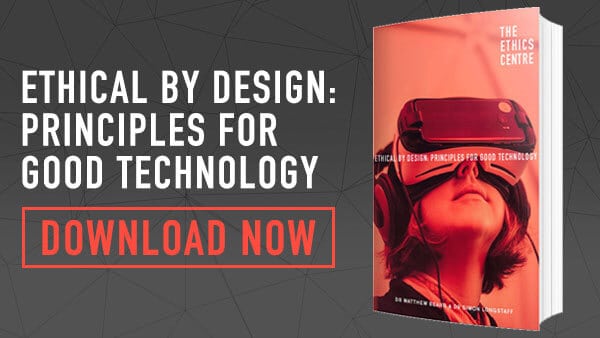
Ethics in your inbox.
Get the latest inspiration, intelligence, events & more.
By signing up you agree to our privacy policy
You might be interested in…
Explainer
Relationships
Ethics Explainer: Epistemology
Opinion + Analysis
Health + Wellbeing, Relationships
How to deal with people who aren’t doing their bit to flatten the curve
Opinion + Analysis
Relationships, Society + Culture
What does love look like? The genocidal “romance” of Killers of the Flower Moon
Opinion + Analysis
Relationships, Society + Culture
But how do you know? Hijack and the ethics of risk
BY The Ethics Centre
The Ethics Centre is a not-for-profit organisation developing innovative programs, services and experiences, designed to bring ethics to the centre of professional and personal life.
Big Thinker: Ayaan Hirsi Ali
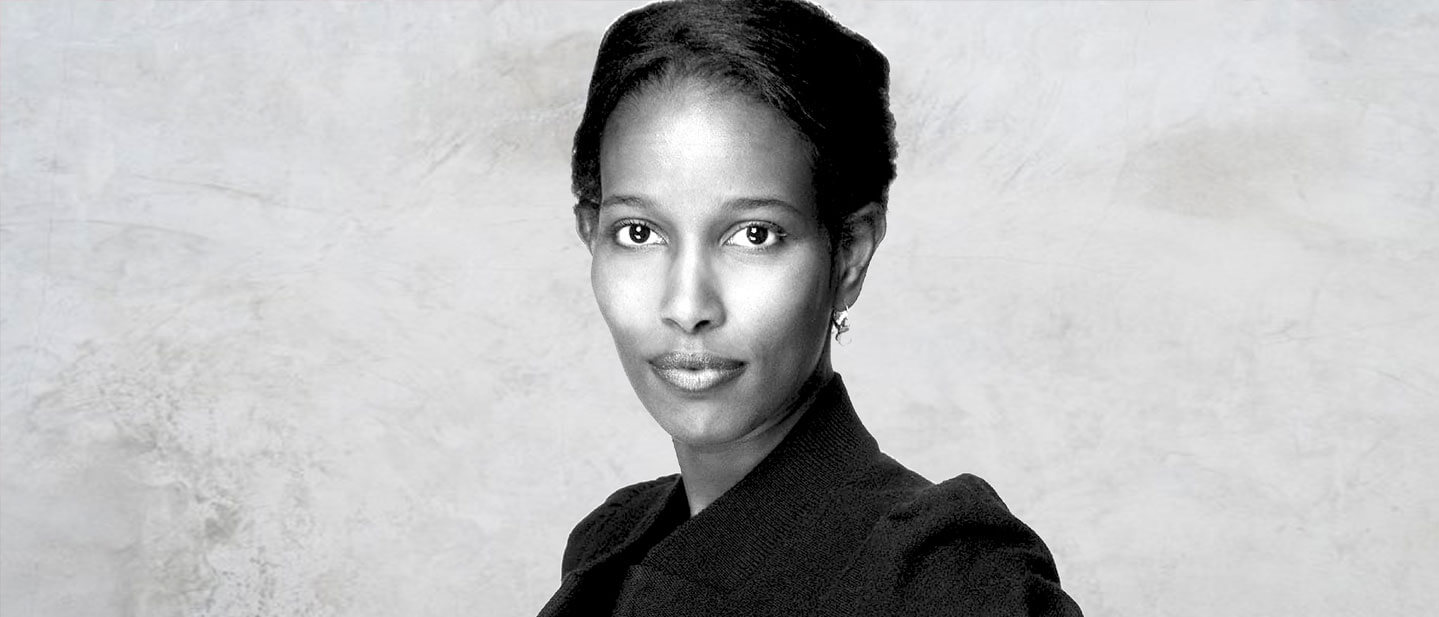
Threatened by Muslim extremists, boycotted by Western activists, Ayaan Hirsi Ali (1969—present) has literally put her life on the line to promote her ideals of rational thinking over religious dogma.
Ayaan Hirsi Ali is a Somali born Dutch American writer best known for her fierce criticism of Islam – the religion of her birth.
She sprung to international notoriety in 2004, when a Muslim extremist killed her Dutch filmmaker colleague Theo Van Gogh, knifing a hand written letter into his chest which called for Hirsi Ali to die next. The extremist targeted the pair for making a film mocking Islam’s treatment of women.
This brush with death only strengthened Hirsi Ali’s resolve to champion her ideals of enlightenment values over religious intolerance. She went on to author four books condemning Islamic teaching and practice.
Fluent in six languages, Hirsi Ali regularly travels the globe on speaking tours, skewering Islam and its local defenders in her articulate, charming style.
She doesn’t appeal to everyone though. The controversial writer has drawn the ire of Muslims and left wing groups who accuse her of anti-Islamic bigotry. Loathed by fundamentalists, she is forced to travel with armed security.
From believer to infidel
Hirsi Ali’s 2006 autobiography Infidel chronicled her extraordinary life journey from devout Somali child to Dutch politician to celebrity atheist intellectual.
Born to a Muslim family, Hirsi Ali says she was five years old when her grandmother ordered a man to undertake a female genital mutilation procedure on her. As a child, she was a believer who read the Qu’ran, wore a hijab and attended an Islamic school.
Looking back, the writer could see all that was wrong with her upbringing – violent beatings, unquestioning faith and rigid enforcement of gender roles.
Hirsi Ali says she sought asylum in the Netherlands in 1992 to flee her father’s attempt to arrange her marriage.
In her new home, the avid reader devoured the writing of enlightenment thinkers like Voltaire, Mill and Locke. These authors taught her to question blind faith and instead embrace science and rational thought.
After working as a translator and researcher, Hirsi Ali was elected to Dutch Parliament in 2002. She used her platform to criticise Islam and Muslim immigration.
Islam ‘is the problem’
Hirsi Ali holds the view that the problem with Islam is not simply a minority of extremists who give the religion a bad name:
“The assumption is that, in Islam, there are a few rotten apples, not the entire basket. I’m saying it’s the entire basket” – Ayaan Hirsi Ali
She argues violence is inherent in the core Islamic text and this is something most Muslims fail to recognise.
According to Hirsi Ali, Muslims can be categorised into three groups.
First, there are “Medina Muslims”, who seek to force extreme sharia law out of their religious duty.
Second, “Mecca Muslims”, are a majority of the faith who are devout but don’t practice violence. The problem with this group, says Hirsi Ali, is they fail to acknowledge or reject the violence in their own religious text.
The third group, “Muslim reformers”, explicitly reject terrorism and promote the separation of religion and politics.
Hirsi Ali argues this third reformer group must overcome the extremists to win the hearts and minds of a majority of Muslims.
Feminist hero or anti-Muslim bigot?
Ayaan Hirsi Ali was initially seen as a feminist activist who championed the cause of oppressed Muslim women. After moving to the US in 2006, she’s associated herself more with right wing groups than women rights’ activists. She became a fellow at the conservative think tank American Enterprise Institute and a regular interviewee on Fox News.
Married to historian Niall Ferguson, the couple have been described as “the Brad Pitt and Angelina Jolie of the intellectual right”.
She has also tweeted her support for Brett Kavanaugh, who was confirmed to the US Supreme Court despite allegations of past sexual assault.
Hirsi Ali’s right wing views and harsh criticism of Islam has seen Western activists target her alongside Muslim fundamentalists.
In 2014, Brandeis University in the US reversed its decision to award her with an honorary degree following objections from students.
In 2017, she cancelled a planned visit to Australia amid security concerns and a petition protesting her speaking appearance.
The Southern Poverty Law Center – a US advocacy group famous for defending civil rights – once categorised her as an anti-Muslim extremist.
Hirsi Ali says she can’t understand why she’s become the enemy:
“It has always struck me as odd that so many supposed liberals in the West take their side rather than mine … I am a black woman, a feminist and a former Muslim who has consistently opposed political violence”.
But if terrorists don’t deter her, activists have no chance. Hirsi Ali will continue to tread her dangerous path to promote what she believes are true liberal values.
Ethics in your inbox.
Get the latest inspiration, intelligence, events & more.
By signing up you agree to our privacy policy
You might be interested in…
Opinion + Analysis
Business + Leadership, Politics + Human Rights
Vaccination guidelines for businesses
Opinion + Analysis
Politics + Human Rights
Where do ethics and politics meet?
Opinion + Analysis
Politics + Human Rights
Why Anzac Day’s soft power is so important to social cohesion
Opinion + Analysis
Politics + Human Rights, Relationships








